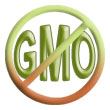Federal Court Rescinds USDA Approval of Genetically Engineered Sugar Beets
Press Release
Earthjustice, Center for Food Safety
August 13, 2010
Order bans planting or sale of controversial crop.
Court denies Monsanto request to allow continued planting.
San Francisco - Today Judge Jeffrey White, federal district judge for the Northern District of California, issued a ruling granting the request of plaintiffs Center for Food Safety, Organic Seed Alliance, High Mowing Organic Seeds, and the Sierra Club to rescind the United States Department of Agriculture's (USDA's) approval of genetically engineered "Roundup Ready" sugar beets. In Seprember 2009, the Court had found that the USDA had violated the National Environmental Policy Act (NEPA) by approving the Monsanto-engineered biotech crop without first preparing an Environmental Impact Statement. The crop was engineered to resist the effects of Monsanto's Roundup herbicide, which it sells to farmers together with the patented seed. Similar Roundup Ready crops have led to increased use of herbicides, proliferation of herbicide resistant weeds, and contamination of conventional and organic crops.
In today's ruling the Court officially "vacated" the USDA "deregulation" of Monsanto's biotech sugar beets and prohibited any future planting and sale pending the agency's compliance with NEPA and all other relevant laws. USDA has estimated that an EIS may be ready by 2012.
Andrew Kimbrell, Executive Director of plaintiff and co-counsel the Center for Food Safety, stated, "This is a major victory for farmers, consumers and the rule of law. USDA has once again acted illegally and had its approval of a biotech crop rescinded. Hopefully the agency will learn that their mandate is to protect farmers, consumers and the environment and not the bottom line of corporations such as Monsanto."
Paul Achitoff of Earthjustice, lead counsel for the plaintiffs, commented: "Time and again, USDA has ignored the law and abdicated its duty to protect the environment and American agriculture from genetically engineered crops designed to sell toxic chemicals. Time and again, citizens speaking truth to power have taken USDA to court and won."
In his order, Judge White noted that USDA's "errors are not minor or insignificant, and his "concern that Defendants are not taking this process seriously." He also pointed out that "despite the fact that the statutes at issue are designed to protect the environment," USDA and the sugar beet industry focused on the economic consequences to themselves, yet "failed to demonstrate that serious economic harm would be incurred pending a full economic review...."
The Court held in part:
…the Court GRANTS Plaintiffs' request to vacate APHIS's decision to deregulate genetically engineered sugar beets and remands this matter to APHIS. Based on this vacatur, genetically engineered sugar beets are once again regulated articles pursuant to the Plant Protection Act. This vacatur applies to all future plantings…
This is the second time a Court has rescinded USDA's approval of a biotech crop. The first such crop, Roundup Ready alfalfa, is also illegal to plant, based on the vacating of its deregulation in 2007 pending preparation of an EIS. Although Monsanto took that case all the way to the Supreme Court and the High Court set aside part of the relief granted, the full prohibition on its planting - based on the same remedy granted here, the vacatur - remains in place. In the past several years federal courts have also held illegal USDA's approval of biotech crop field trials, including the testing of biotech grasses in Oregon and the testing of engineered, pharmaceutical-producing crops in Hawai'i.
This case is Center for Food Safety v. Vilsack, No. C08-00484 JSW (N.D. Cal. 2010).

